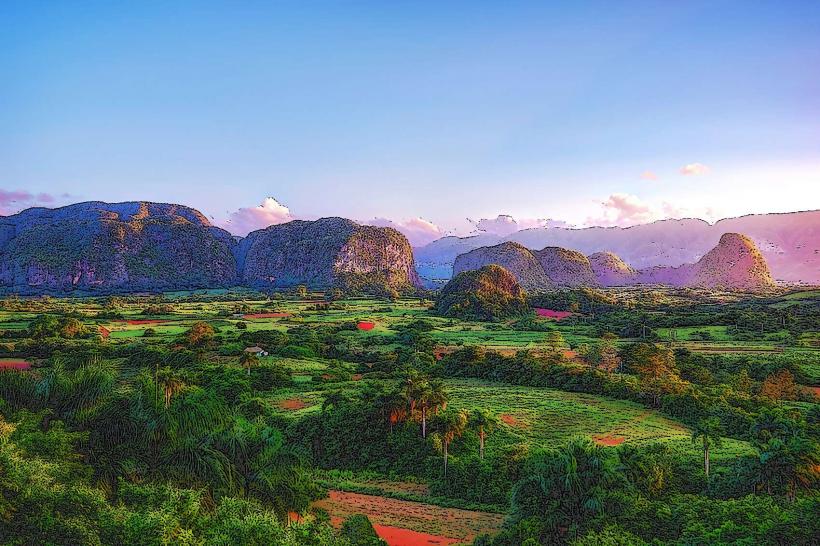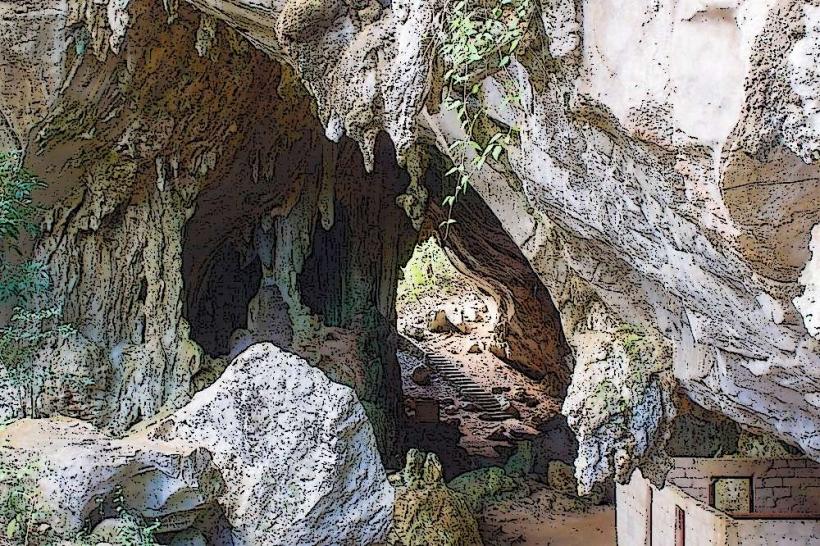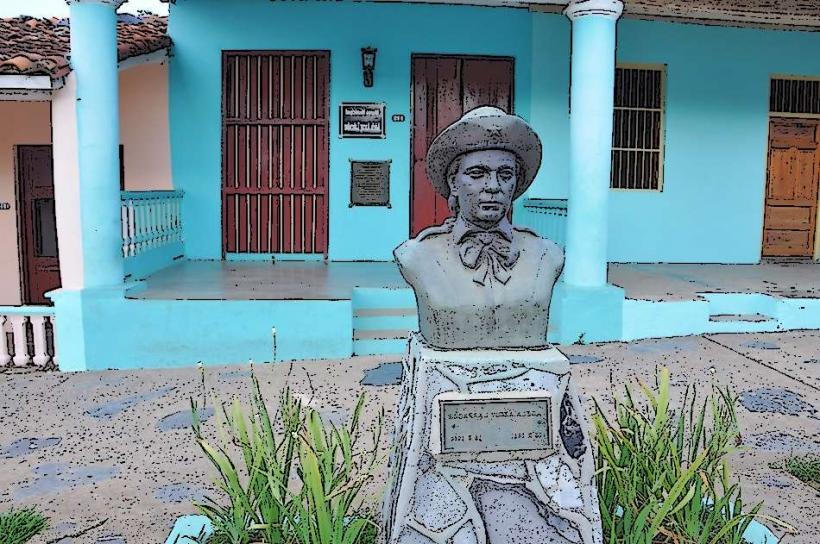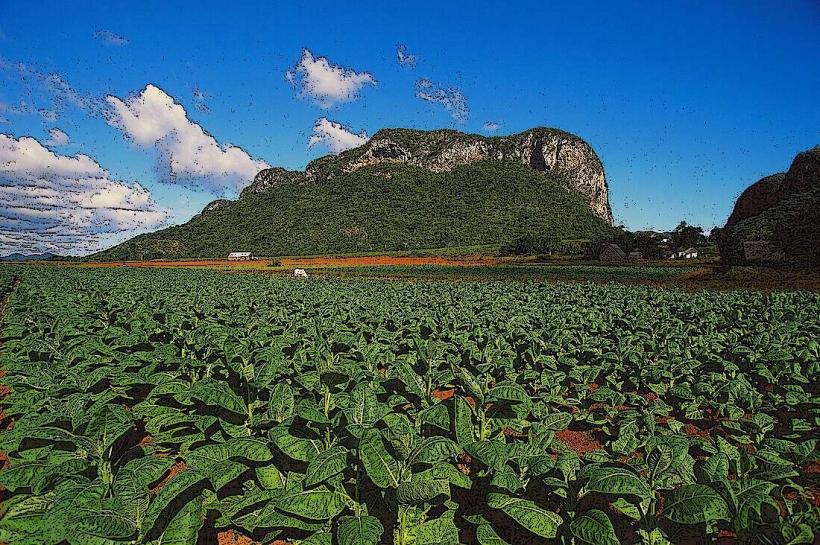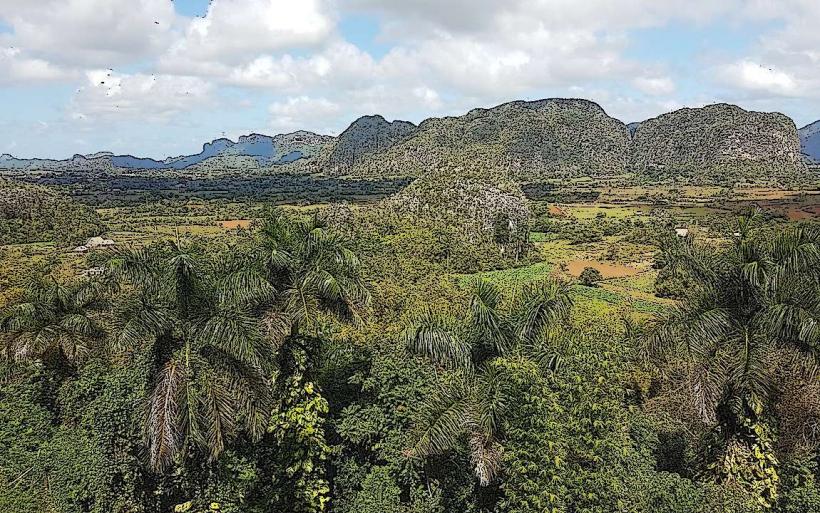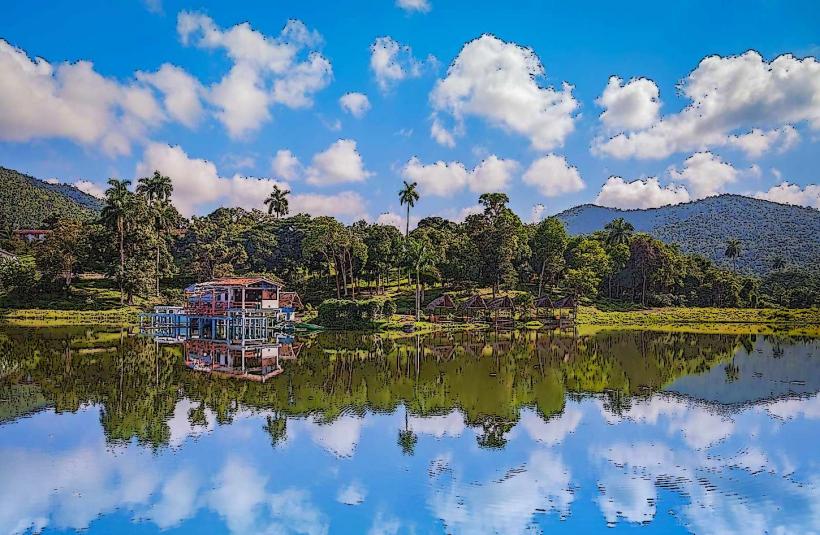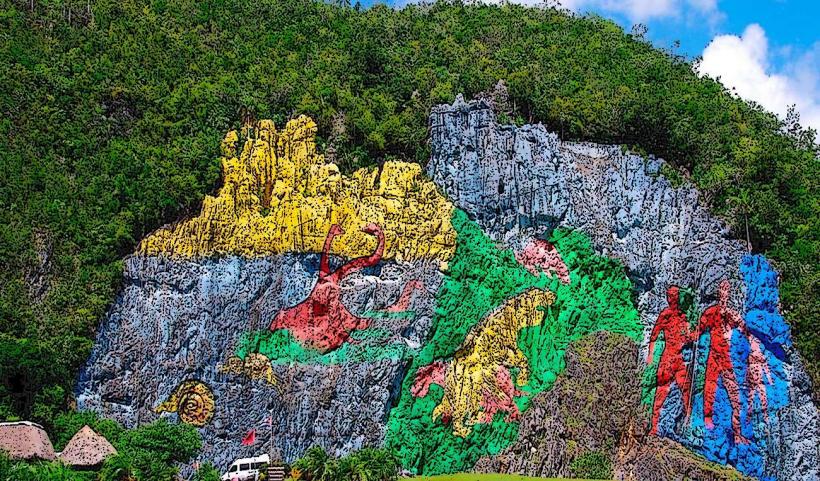Information
Landmark: Cueva del IndioCity: Pinar del Rio
Country: Cuba
Continent: North America
Cueva del Indio, Pinar del Rio, Cuba, North America
Cueva del Indio is one of the most popular natural attractions in the Viñales Valley of Cuba. This fascinating cave offers visitors a unique experience with its combination of geology, history, and adventure. Here’s an in-depth guide to Cueva del Indio:
Location
- Address: Near the town of Viñales, Pinar del Río Province, Cuba.
- Accessibility:
- Approximately 5 kilometers (3 miles) from Viñales town.
- Easily reachable by car, taxi, or bicycle.
- Well-marked signs lead to the site.
Overview
- Geological Significance:
- Formed over millions of years, the cave features stunning limestone formations typical of the karst landscape in the Viñales Valley.
- The interior showcases stalactites, stalagmites, and underground rivers.
- Historical Importance:
- The cave was originally used by indigenous Taíno people as a shelter.
- Artifacts and petroglyphs found in the cave provide insights into pre-Columbian history.
The Experience
Visiting Cueva del Indio combines a guided walking tour and an exciting boat ride through an underground river.
Walking Tour
- Entry:
- The tour begins with a walk through a well-lit path showcasing the cave’s limestone formations.
- Guides explain the cave’s history, geology, and its use by the indigenous people.
- Rock Formations:
- Visitors can admire intricate natural sculptures formed over millennia by water erosion.
- Some formations are named for their resemblance to animals or objects (e.g., "The Crocodile" or "The Eagle").
Boat Ride
- Underground River:
- After the walking section, visitors board a small motorized boat.
- The boat ride lasts about 10–15 minutes and navigates through a subterranean river.
- Highlights include stunning reflections on the water, narrow passages, and dramatic rock walls.
- Exit:
- The boat ride ends at a different section of the cave, leading to an open area where visitors can enjoy more views of the valley.
Key Features
- Length: About 170 meters (558 feet) of the cave are accessible to tourists.
- Lighting: The cave is illuminated to enhance visibility while preserving its natural ambiance.
- Scenic Views: The exit of the cave provides picturesque views of the surrounding Viñales landscape.
Nearby Activities
- Tobacco Farms: Combine your visit with a tour of nearby tobacco plantations to learn about cigar-making.
- Palenque de los Cimarrones: Explore another nearby cave associated with the history of escaped slaves (cimarrones).
- Mural de la Prehistoria: A short drive away, this massive mural on a limestone cliff depicts the evolutionary history of the region.
Practical Information
- Hours: Open daily, typically from 9:00 AM to 5:00 PM.
- Entry Fee: Approximately 5–10 USD per person (subject to change).
- Facilities:
- Parking available onsite.
- Small souvenir shops and snack stands near the entrance.
- What to Bring:
- Comfortable walking shoes (the cave floor can be slippery).
- Light clothing (the cave remains cool and damp).
- A camera to capture the stunning formations.
- Guided Tours:
- Available in multiple languages.
- Local guides often include anecdotes and folklore about the area.
Best Time to Visit
- Dry Season (November to April): Ideal weather for exploring both the cave and the Viñales Valley.
- Early Morning or Late Afternoon: Less crowded times for a more intimate experience.
Highlights
- Unique Boat Ride: A rare opportunity to explore a subterranean river.
- Indigenous History: Learn about the Taíno people who used the cave.
- Natural Beauty: Stunning limestone formations and a serene underground atmosphere.
Cueva del Indio is an unforgettable attraction in Cuba, offering a blend of natural wonder, cultural heritage, and adventure. It's a must-visit for anyone exploring the Viñales Valley.

